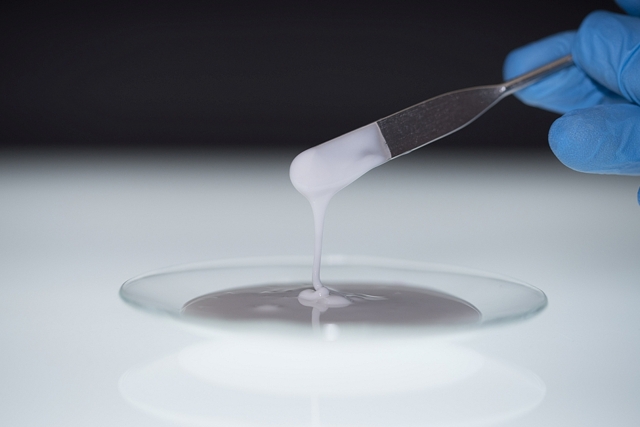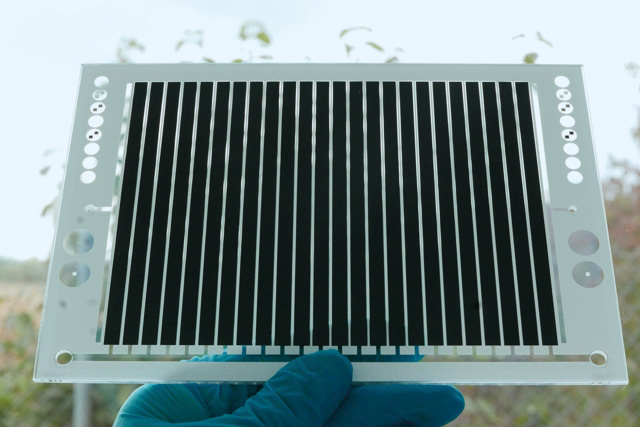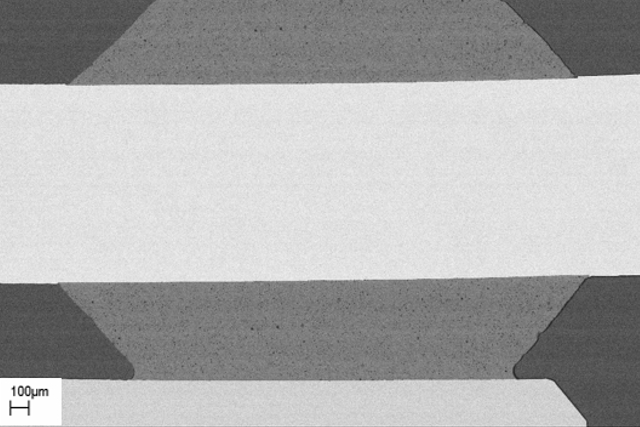From glass to glass ceramics: for joining metals, glasses, ceramics and combinations

Glass paste for screen printing.

Joining of two glass plates for photovoltaic application.

Glass seal for high temperature fuel cells.
The Glass Department of Fraunhofer ISC develops (crystallizing) glass sealants with specially adapted properties for bonding a wide variety of materials. In addition to glass development and production, suitable pastes are processed (e.g. by screen printing). The development and application of a temperature program for the bonding process is also realized by the glass group. Glass sealants can be used as joining material when polymer adhesives, solder metals and ceramic high-temperature adhesives reach their limits.
For combined requirements from the fields of
- Gas tightness
- High operating temperature (>> 600 °C)
- Low difference between maximum processing temperature and operating temperature
- Expansion coefficients unusual for glass (e.g. <5*6-10 K-1 or >9*10-6 K-1)
- Chemical resistance to contact materials, liquids and gases
Possible fields of application
- Fuel cells
- Batteries
- Solar cells
- Sensors
- Optical components
- Electronic components
Current examples
- Glass sealants for SOFC (Sealing Stacks): Cooperation with ElringKlinger AG and KIT; sponsored by BMWi; joining of metal-metal and metal-ceramics with a thermal expansion > 10*10-6 K-1
- MAVO-PeroTec: Fraunhofer internal with ISE and IWM; sealing of a perovskite solar cell and electrical insulation of the individual cells. Joining of two soda-lime-silica glass panes
